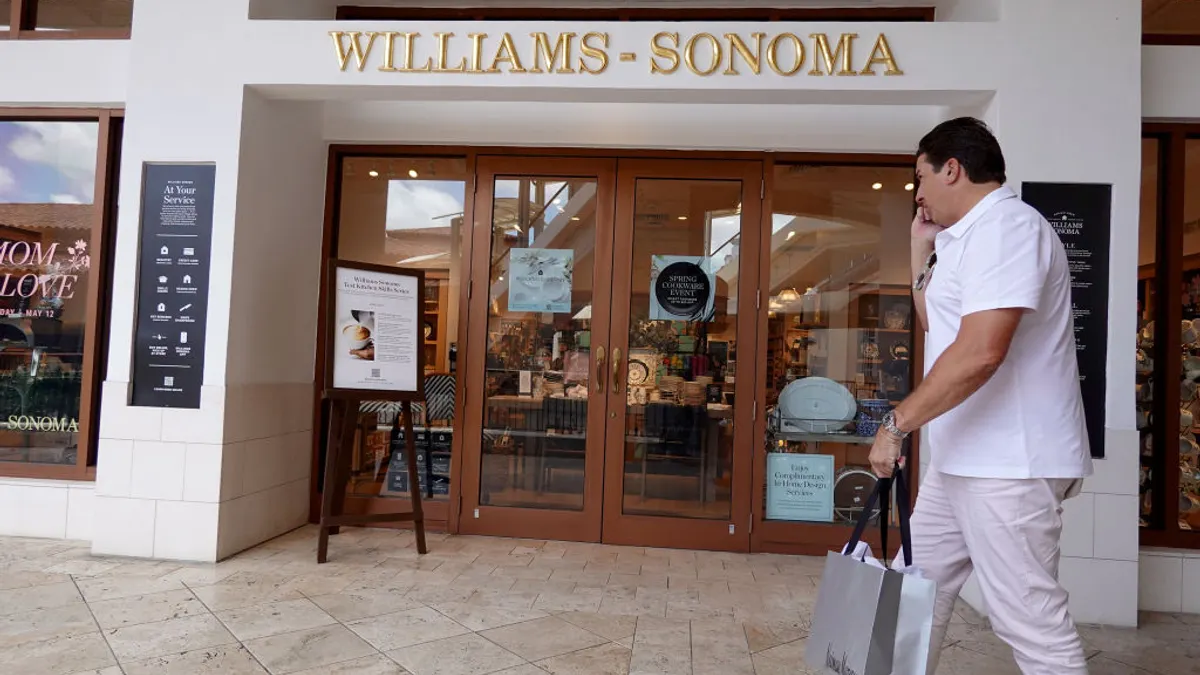Dive Brief:
- Williams-Sonoma is launching AI agents to increase efficiency and reduce service costs. The agents were built and deployed with Salesforce’s Agentforce 360 platform, Salesforce announced Tuesday.
- The agents will operate across Williams-Sonoma’s portfolio of brands, including Williams Sonoma, West Elm and Pottery Barn, and will offer 24/7 support. The retailer expects the AI agents to be able to handle more than 60% of chat inquiries.
- Williams-Sonoma is looking into using AI agents in its service, marketing and design functions. The technology could be used in the retailer’s product discovery and lifestyle services.
Dive Insight:
Williams-Sonoma is betting big on the potential of AI to enhance its customer experience.
In August, Williams-Sonoma expanded an AI-powered customer service assistant across all of its brands, according to CEO Laura Alber on a Q2 2025 earnings call. The assistant had launched at Pottery Barn Kids earlier in the summer.
The new AI agents are designed to help the retailer meet and scale demand for personalized support without compromising on quality, according to companies. They will integrate with human experts across Williams-Sonoma’s brand websites.
Williams-Sonoma is working on an AI-powered “culinary companion” designed to assist with product discovery as well. The agent, nicknamed Olive, is designed to offer customized menus with recipes, shopping lists and kitchen tool suggestions, including items the customer already owns from past purchases.
While AI may have its place in customer service, many consumers still prefer help from other people. More than 4 in 5 consumers say they are more likely to stay loyal to companies that prioritize human customer service over automated or self-service options alone, according to a Ricoh study.
Additionally, nearly 1 in 5 consumers say that AI for customer support doesn’t provide any benefits, according to a Qualtrics XM Institute report. Despite this attitude, the survey found overall CX quality is improving across metrics including satisfaction and the likelihood to trust.














